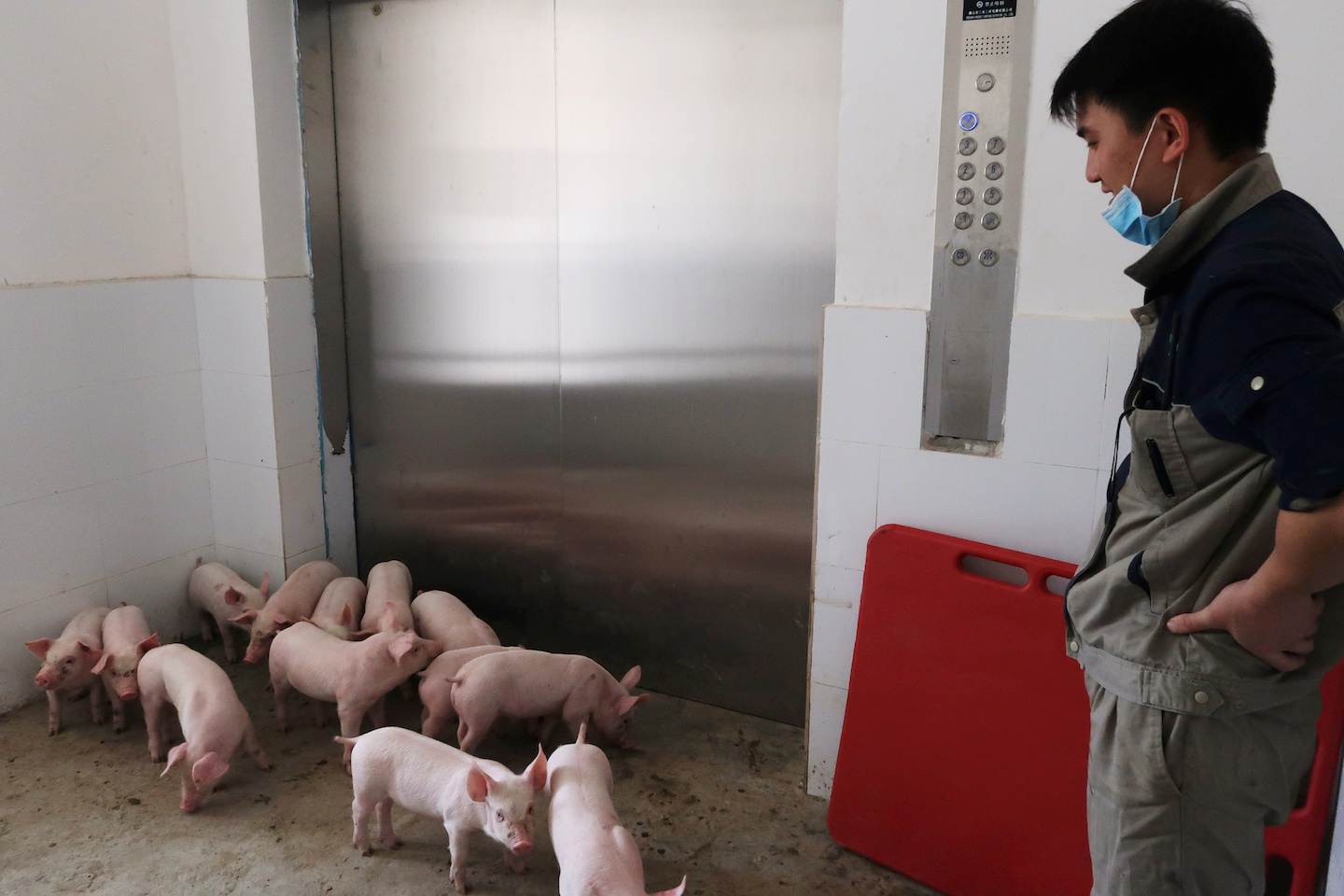China Is Building a City of Pig Apartments to Protect Their Herds from Swine Flu
October 16, 2020Atop the heavily forested slopes of Mount Yaji, some 40 miles northeast of Beijing, a private agricultural company is building a veritable pig city: a cluster of high-rise apartment buildings—or, more accurately, factory farms—designed to accommodate the world’s largest herd of hogs.
It’s hoped that Guangxi Yangxiang’s half dozen tower blocks could future-proof China’s precious pig population against the risk of diseases like African swine fever, which has wiped out 200 million of the animals—or half the world’s population—since 2018. The “hotels” are designed to be sealed off in order to prevent contamination and, when complete, could collectively produce 840,000 piglets a year.
One of the structures is set to have as many as 13 vertically-stacked floors worth of pigs, making it the world's tallest building of its kind.
“There are big advantages to a high-rise building,” Xu Jiajing, a manager of the farm, told Reuters. “It saves energy and resources. The land area is not that much but you can raise a lot of pigs.”

The tower complex, erected in an 11-acre clearing at Mount Yaji’s summit, is projected to house 30,000 sows by the end of the year. For context, a large breeding farm in northern China would more typically house 8,000 sows on a 13-acre site. Nor has Yangxiang spared any expense, spending a total of about 500 million yuan (just under $75 million USD) on the facilities—averaging out at about 16,000 ($2,380 USD) yuan per pig—not including the cost of the animals themselves.
Having so many pigs living cheek to jowl under the same roofs has raised some health concerns, as such a densely populated farming environment heightens the risk of a rampant disease outbreak. But Robert Herrmann, managing director of market analysts Mecardo, suggested that the complex’s biosecurity controls are unparalleled.
"We've seen evidence of multi-storey piggeries that look like apartment blocks," Herrmann told the ABC. "They're completely contained so the biosecurity standards are at a level almost unseen in any other areas of the world and those sort of efforts are going to allow them to increase their pig herd very quickly.
"It's also going to mean that that pig herd is far more secure and safer than what it was pre-African swine fever."
Yangxiang isn’t the only Chinese company entering the high-rise hog farm industry. Reuters reports that pig breeding company Shenzhen Jinxinnong Technology Co Ltd also plans to invest 150 million yuan towards two five-story sow farms in China’s southeastern Fujian province, along with two other companies in the same area.
It is as yet unclear whether the model will prove superior to more traditional forms of pig-farming—or whether it will succeed in locking out the risk of infectious pathogenic diseases.
Follow Gavin on Twitter
